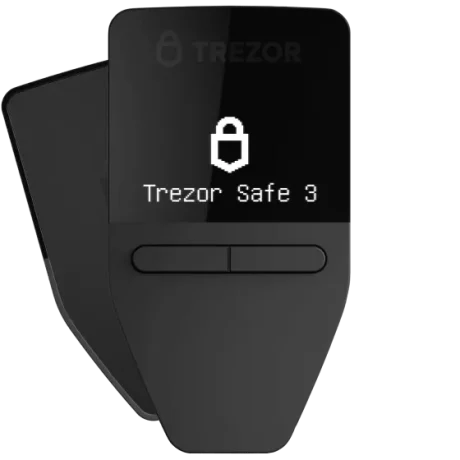The Best Of...
Top 10 Misconceptions About Cryptocurrencies
Securities.io is committed to rigorous editorial standards. We may receive compensation when you click on links to products we review. Please view our affiliate disclosure. Trading involves risk which may result in the loss of capital.

There are a lot of misconceptions about cryptocurrencies in the public today. Cryptocurrencies come in many different forms, and there have been a lot of changes to these networks since the early days of Bitcoin. As such, the technological aspects of these assets can seem overwhelming, which can lead to myths and rumors becoming common.
Crypto misconceptions hurt the industry in many ways. Consequently, it's every crypto user's responsibility to fight these falsehoods whenever you encounter them. Here are the top 10 misconceptions about cryptocurrencies you need to know.
1. It's is a Passing Fad – Misconceptions About Cryptocurrency
There are still some people in the world who believe that the entire crypto market is a fad. This misconception was prevalent 14 years ago when only a handful of projects were operating. Surprisingly, it has remained a myth brought on by bad press.
Every other quarter, the news runs a story that Bitcoin and the market died. This type of negative press feeds the misconception that the market is just a hollow shell. However, the reality of the situation is much different.

Source – Bitcoin Obituaries
The crypto market is a vibrant tech sector that continues to expand. It provides benefits to the many people involved in the market, from developers to users. Additionally, you can't ignore that cryptocurrencies have evolved to the point that they are now custom-built for specific purposes. As such, they've become an integral part of multiple industries.
2. They're Anonymous
One of the oldest and most common myths surrounding cryptocurrencies is that they're completely anonymous. This misconception stems from a couple of different factors. For one, most networks don’t require any identification.
In the past, there weren't many blockchain forensic firms as there just wasn’t a demand for them. As such, people began to believe that their actions conducted on public blockchains such as Bitcoin couldn't be traced back to them at a later date.
This falsehood has been proven wrong time and time again. Public blockchains like Bitcoin may not require your name, but they do leave a detailed trail of transactions from day one. These transaction details can be combined with other data, such as your IP address, to form a better picture of the user's identity.
The vast majority of cryptocurrencies are not anonymous. However, there is a subsector of coins called privacy coins that leverage technologies like zero-knowledge roll-ups to make it much more difficult and expensive to figure out who owns a particular account or the details of a transaction.
3. Cryptocurrencies Don't Have Backing
The idea that cryptocurrencies don't have any backing came about due to misunderstandings about what gives a crypto value. Bitcoin and many other assets have a strong following, adding to the demand. Additionally, there are costs associated with the creation process of each coin.
When you combine these factors with rising usability and accessibility, it becomes obvious that crypto's value derives from many different sources depending on the project. Today, many types of cryptocurrencies are in operation, and some use more traditional reserves to back their value. These coins, in particular, are called stablecoins.
Stablecoins often leverage reserves in the form of fiat currency or commodities such as gold. There are even stablecoins that use other cryptocurrencies to retain value. The latter leverages smart contracts and adjustable reserves and supplies to create a balance.
In many instances, a crypto's value is based on its usability. These blockchain assets are called utility tokens because they serve a specific role in a network. A perfect example of a token that has value due to its utility is Ether.
Ether is the utility token for the Ethereum blockchain. This token serves several roles, including the primary way to pay network fees and gas costs. Notably, the market is filled with similar projects that serve specific utilities that provide them with value.
4. Crypto is Anti-Banking
The first crypto projects could be seen as having a larger goal to liberate people from the centralized banking system. However, this perspective has changed greatly over the last 14 years. As the market expanded, many crypto projects saw banks as the perfect client for their offerings rather than the enemy.
Projects like Ripple focused on the banking industry from day one. The RipplNet enables banks to send value internationally using the XRP utility token. This structure has already saved banks millions in costs thanks to blockchain p2p structure.

Source – Google – RippleNet
The blockchain space continues to open up and work with the traditional banking sector. It's even becoming more common for banks to offer custodial services to crypto users seeking to store their coins in an insured environment.
The integration of crypto banking has progressed greatly over the last few years. Today, crypto debit cards enable users to spend their crypto just like any debit card. This structure is good for the entire industry because it kicks up usability and accessibility without raising users' technical requirements.
5. Crypto is for Illegal Use Only
The misconception that crypto is only for illegal use is one of the easiest to dispel on this list. Much of this myth comes from the early days when cryptos like Bitcoin were the main currency of the dark web.
Networks like the Silk Road helped to facilitate millions in illegal activity before being shut down. The individual running the website, Dread Pirate Roberts, received a life sentence for his role in the market.
Misconceptions About Cryptocurrency
The reality of the situation is that fiat currency is the currency of choice for criminals around the world. It gets used in far more cases daily than crypto could ever achieve. However, there is no reason to promote these obvious factors as they won't drive ratings for media outlets.
Some people use cryptocurrencies to commit crimes. However, this small fraction of users is less than 1% of the market. This misconception is easy to debunk but continues as a talking point for those seeking to limit or restrict access to digital assets.
The majority of cryptocurrency use is for legal means such as storing value or lowering transaction costs. There are now endless reasons to use cryptocurrencies. As such, it's a bit ridiculous to state they are only used by criminals when firms such as IBM have operated public and private blockchains for years.
6. Governments Don’t like Cryptocurrencies
This myth is only half false, as many governments worldwide have an anti-crypto stance. However, this is not the majority. The largest economies in the world, except China, have vibrant blockchain industries.
Governments have warmed up to the concept of blockchain assets as both reserves and a smart way to cut operating costs and improve efficiency. For Example, El Salvador made Bitcoin legal tender, and the country has continually stacked SATs since then. You can pay for anything in El Salvador, from a cab ride to your taxes, using Bitcoin.
The decision to make Bitcoin legal tender has resulted in expansive tourism and the creation of a large crypto-community called Bitcoin Beach. The success of their maneuver and the growing demand for an inflationary-resistant reserve currency led many other nations to consider making Bitcoin legal tender in the future. This scenario demonstrates that nations must learn to love blockchain technology or become less competitive across most major industries.
7. You Need to be Techy to Use Crypto
You don’t need to be a tech genius to use cryptocurrency. If you can use a banking app on your smartphone, you're already tech-savvy enough to begin using cryptocurrencies today. Digital assets like Bitcoin, Ethereum, EOS, and more don't require much technical understanding to use a currency.
There are even networks that streamline the token and blockchain creation process for everyone. These plug-and-play network block builders are becoming the new industry standard. As such, there are now more blockchains than ever as more people can get into the creation space.
Of course, gaining some technical understanding of the many cryptocurrencies and their structures doesn't hurt. This understanding will provide you with a better knowledge base so you can gauge the project's true value more accurately.
You shouldn’t trade or invest in cryptocurrency that you don’t understand. The good news is that only a few common infrastructure setups are in use in the market currency. Learning these consensus mechanisms and their pros and cons can help you to make more informed investment decisions.
8. Cryptocurrencies Are Not Regulated
The regulatory climate for the crypto market continues to gain structure around the world. Yes, in some nations, there are little to no restrictions or even mention of cryptocurrencies in the law books. However, this is not the norm, as most nations have already added some form of regulation on the market.
These regulations usually began with large CEXs (centralized exchanges). In the US, major CEXs like Coinbase must get licensing on multiple levels to operate legally. These requirements span the gamut of regulatory concerns from tax evasion to money laundering and custodial issues.
The rise in CEX regulations came after major hacks and losses around the globe shook the market. Ever since Mt.Gox collapsed a decade ago, there have been calls for lawmakers to try and protect consumers from these actions. Today, it's much more difficult to open and operate a CEX in many parts of the world due to these regulations.
9. It's Not Taxable – Misconceptions About Cryptocurrency
Another major myth that can get you into some trouble is that cryptocurrencies are nontaxable. This belief is far from the truth in most nations. You must consult your local accountant and tax code to ensure that you don’t run afoul of your tax obligations.
Some countries don’t require crypto users to file or pay taxes. Countries like South Korea, Denmark, Italy, Singapore, and more support tax-free crypto use. A more common setup is that crypto users must pay capital gains tax on their trades. This structure is more common in developed nations like the US.
Some countries tax your crypto as assets, and others tax it as currency. The differences in these approaches can be huge. Sadly, in some nations, almost 20% of your trade profits will go to taxes. Consequently, it's vital to be aware of your local tax code for a variety of reasons.
First, you don’t want any issues in the future regarding missed taxes. Also, you may find that the law provides some loopholes. For example, you may not have to pay capital gains taxes if you reinvest your funding within a certain period. The best way to know for sure is to consult with a tax specialist.
10. It's Hard to Keep Your Crypto Safe
The constant negative press surrounding crypto losses can make it seem as if it's nearly impossible to keep your crypto safe from hackers. The truth is that crypto is very easy to secure. If you follow a couple of key steps, the chances of your crypto getting stolen are minimal.

Source – Trezor
You should be discreet about your holdings. Never brag online or in general about how much crypto you hold. There are lots of stories online of hackers and thieves targeting individuals for their holdings based on their social media posts.
Additionally, there are still people who will rob you of our assets the old-fashioned way. These individuals are very dangerous. They most commonly focus on flashy individuals who make it known they have small crypto fortunes. Remember, your passkey is only good if you don’t have to give it to someone at gunpoint.
Hardware Wallet
Notably, you may not need to go to that extent, but at the very least, a hardware wallet that keeps your tokens in cold storage is the best option for traders. These devices are inexpensive and highly effective at preventing hackers.
The main benefit is that it requires a physical button to be pushed to execute transfers. Since the hackers can't press a physical button without holding the physical device, your crypto remains safe. As such, this low-cost method is essential for every trader to adopt.
Top 10 Misconceptions about Cryptocurrencies in 2024
It’s a new year, and the crypto market is in full swing. Despite being 15 years old, there are still many misconceptions that have led new users astray. Now that you are aware of these fallacies, you can do your part to help educate the masses and drive crypto adoption in the future.
You can learn more about exciting blockchain projects here.











